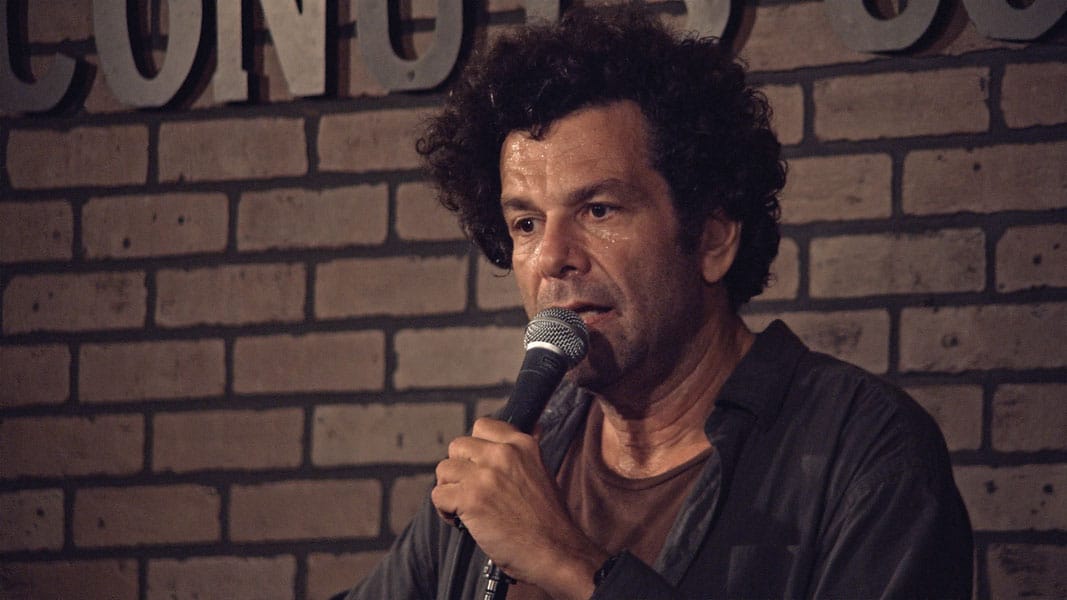
Having been a standup comedian for 17 years, it is not uncommon for other comedians to ask me if I am related to Al Lubel, since my last name is Lobell. As far as I know, we are not related (aside from the fact that we are both Jewish), but I do have a strong connection to him.
Lubel was the first comic I ever saw perform in a comedy club. I kept looking for more comedians like him, because he was so funny. There were none. His jokes were just so much smarter than everyone else’s.
Finally, the world is going to learn how much of a comedy genius Lubel is; he’s the star of a new documentary, “Mentally Al,” which follows him on his gigs, shows a glimpse into his personal life – like visiting his elderly mother in a nursing home in Florida – and features interviews with his contemporaries like Sarah Silverman, Judd Apatow, Kevin Nealon and Andy Kindler. Silverman talked about how Lubel was the first alternative comedian before alt comedy even existed.
The movie is directed by Joshua Edelman, and produced by Edelman and Daniel Marino (who is, fun fact, Miami Dolphins legend Dan Marino’s son). It’s being distributed by Comedy Dynamics and is available on YouTube, Amazon Prime Video, Comcast, Spectrum, Apple TV and Google Play.
Despite the respect of his peers and his many career accomplishments, the whole theme of the documentary, Lubel said, is, ‘Why is this very funny guy not more successful?’
Despite the respect of his peers and his many career accomplishments, the whole theme of the documentary, Lubel said, is, “Why is this very funny guy not more successful?”
A former lawyer, Lubel never became famous, despite his winning a $100,000 grand prize for “Star Search,” and then going on to do sets on late night shows.
In the film, Lubel recounts a fellow comedian asking him a question that he found hurtful: “If you could do it all over again, would you still do comedy?”
Lubel explained that the question implied that he is a failure because this comedian wouldn’t ask that to Jerry Seinfeld. Though he is not a financial success, he said he does not see himself as a failure. He got to stop being a lawyer to do comedy. Every day that he’s a comedian and not a lawyer, he says he is a success.
Lubel is a sharp joke writer. One of my favorites goes something like this: “I don’t vote because I don’t think my vote counts. My friend said, ‘Al, what if everyone didn’t vote because they thought their vote didn’t count?’ Well, then my vote would count.” It’s a circular logic that he often uses.
One thing I love about the film is that it really makes you think. But then again, you’d be thinking without the movie. So to be more accurate, it’s the kind of movie that really makes you think about Al Lubel. And if there is one thing Al Lubel loves, it’s people thinking about Al Lubel.
As he says in the movie, his audience is people who don’t know about him. If they did, they would love him and come see him, but in a given crowd, there are often only some that love him but they are usually only just finding out about him then.
The comic, who is endlessly self-deprecating, can’t resist relating this story to me: “The director’s ex-girlfriend is a psychologist and she watched [the film] twice. She said ‘Al really intellectualizes everything.’ And I think that’s true. That’s a way of putting it. I didn’t like hearing it actually because it explains me and I think I am unexplainable. Is that all I was doing is intellectualizing? I thought I was more interesting than that.”
He continued, “I analyze everything to death and then don’t do everything. And that’s my excuse for not doing anything. Doing nothing is something, but at least it’s easier.”
Daniel Lobell is a comedian and podcaster living in Los Angeles. He is the author of the Fair Enough comic book series and hosts the Doctorpedia podcast.


































 More news and opinions than at a Shabbat dinner, right in your inbox.
More news and opinions than at a Shabbat dinner, right in your inbox.